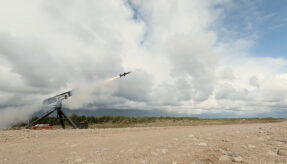
In a time marked by escalating global tensions and unpredictable geopolitical shifts, the United Kingdom has embarked on a significant transformation of its defence strategy. Prime Minister Keir Starmer’s recent announcement to elevate defence spending to 2.5% of GDP by April 2027, with aspirations of reaching 3% in the subsequent parliament, signifies the most substantial investment in the UK’s military capabilities since the Cold War. This decisive move not only aims to fortify national security but also promises to invigorate the domestic economy through the creation of specialised employment opportunities.
The Geopolitical Landscape: Catalysts for Increased Defence Spending
The contemporary global arena is fraught with complexities that challenge traditional security paradigms. The protracted conflict in Ukraine, now surpassing its third year, exemplifies the resurgence of state-based aggression in Europe. Russian military actions have destabilised the region, compelling European nations to reassess their defence postures. Concurrently, the unpredictability of alliances, highlighted by the United States’ evolving foreign policy under President Donald Trump, has underscored the necessity for Europe to assume greater responsibility for its own security. In response, the UK government has articulated a commitment to bolster its defence budget, recognising the imperative to adapt to these multifaceted threats and to ensure the protection of its national interests.
Economic Implications: Defence Spending as a Catalyst for Job Creation
Beyond the immediate objective of enhancing national security, the augmentation of defence expenditure is poised to yield substantial economic dividends. The infusion of capital into the defence sector is anticipated to stimulate industrial growth, particularly within the UK’s robust defence manufacturing base. This surge in investment is expected to generate a plethora of specialised roles, ranging from advanced engineering positions to research and development experts. The Ministry of Defence has delineated priorities that include the expansion of munitions stockpiles, the advancement of uncrewed systems, and the modernisation of existing military infrastructure. These initiatives necessitate a skilled workforce, thereby fostering job creation and contributing to the broader economic revitalisation.
LUNIQ’s Role: Empowering the Defence Sector Through Specialist Recruitment
As the UK’s defence landscape undergoes this transformative expansion, the demand for highly skilled professionals becomes increasingly pronounced. LUNIQ stands at the forefront of this transition, offering bespoke recruitment solutions tailored to the unique requirements of the defence industry. With an in-depth understanding of the sector’s intricacies, LUNIQ is adept at identifying and securing top-tier talent across a spectrum of specialisations, including systems engineering, cybersecurity, and project management. By bridging the gap between burgeoning defence projects and the requisite human capital, LUNIQ plays an instrumental role in actualising the UK’s defence and economic objectives.
Conclusion
The UK’s strategic decision to amplify defence spending is a multifaceted response to the prevailing geopolitical uncertainties. This initiative not only aims to safeguard national security but also serves as a catalyst for economic growth through the creation of specialised employment opportunities. In this dynamic context, LUNIQ emerges as a pivotal partner, facilitating the alignment of skilled professionals with the evolving needs of the defence sector, thereby contributing to the nation’s security and prosperity.
Contact: https://luniq.com/contact/









